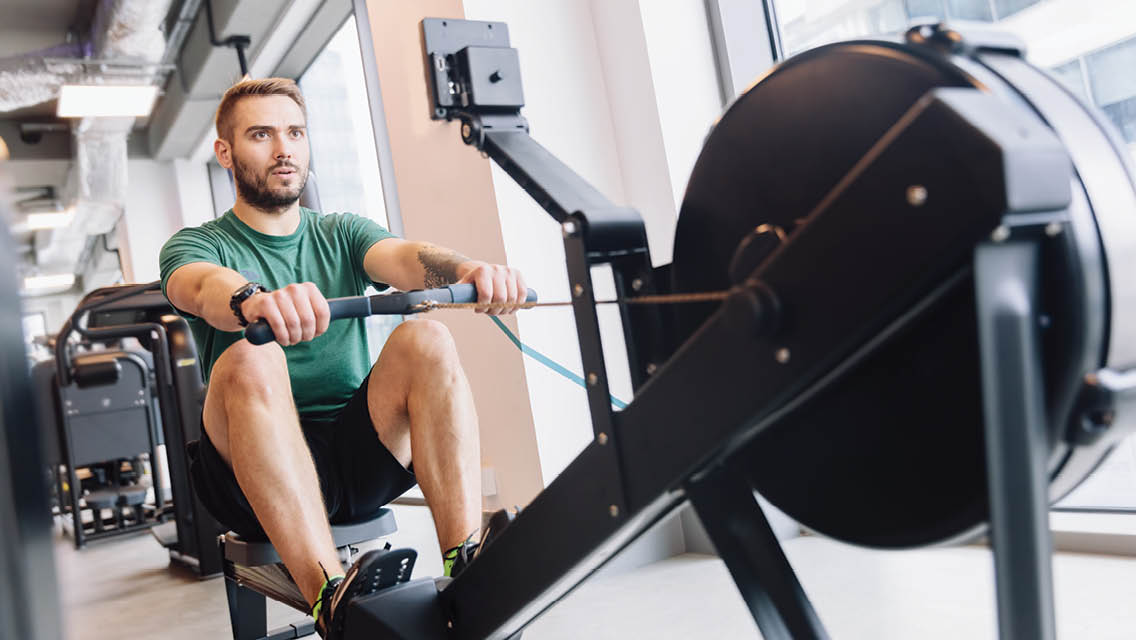It’s pretty widely accepted these days that exercise promotes cognitive function, so after lifting a couple thousand pounds before breakfast and then pedaling my bike up a killer hill to the office a mile away, I’m often a bit vexed when my memory fails me. Just last week, for instance, I was chatting with a coworker and simply could not recall the name of her predecessor. That was only slightly less embarrassing than the time I arrived at the top of the hill, my heart rate about maxed out, only to discover I’d left my laptop at home.
I figure these bouts with forgetfulness are just a reminder that my septuagenarian brain is acting its age despite my best fitness efforts, but Jeremy Manning, PhD, and his Dartmouth University research team suggest it’s more nuanced than that. Their study, published last month in Scientific Reports, found that a regular exercise regimen does keep our gray matter more nimble — but the effect manifests in different ways, depending on the intensity of our workouts.
“When it comes to physical activity, memory, and mental health, there’s a really complicated dynamic at play that cannot be summarized in single sentences like ‘walking improves your memory’ or ‘stress hurts your memory,’” explains Manning, an associate professor of psychological and brain sciences at Dartmouth. “Instead, specific forms of physical activity and specific aspects of mental health seem to affect each aspect of memory differently.”
Manning and his team analyzed a year’s worth of exercise data (daily step counts, average heart rates, and the like) from 113 Fitbit users and separated them into groups based on their workout intensity. They then asked the volunteers, who ranged in age from 19 to 68, to perform a series of tests measuring three types of memory: episodic (remembering autobiographical events), spatial (recalling locations), and associative (remembering connections between other memories or concepts).
Their results indicated that those who generally favored moderate-intensity workouts displayed better episodic memory, while hardcore exercisers seemed to master spatial recall. Couch potatoes had particular difficulty handling spatial-memory tasks.
How this all works, of course, is not immediately obvious. We know that physical activity triggers specific changes in the body, and it’s possible that the subsequent release of endorphins and other chemicals switches on certain neurotransmitters in the brain. Manning points to changes in levels of a chemical messenger called acetylcholine, which modulates communication between parts of the brain connected to memory and “might lead to specific changes in memory formation and retrieval.”
So, I guess if you’re worried about recalling where you parked your car at the mall (spatial memory), you might want to ramp up your workouts. Or if you find yourself at a loss when recounting the day’s events over the dinner table (episodic memory), a lower-intensity regimen might be worth considering. Manning says further research may someday produce specific exercise programs “to help students prepare for an exam.”
As is often the case, however, these results don’t prove that certain types of workouts enhance certain types of memory skills. “We cannot know (from our study) whether engaging in particular forms of physical activity causes changes in memory performance or mental health,” Manning concedes, “or whether (alternatively) people who tend to engage in similar forms of physical activity also happen to exhibit similar memory and/or mental-health profiles.”
I wouldn’t know a Fitbit from a Fiat, so even if I wanted to modify my workout intensity based on Manning’s results, I couldn’t precisely measure my activity level. And my relative powers of recall tend to vary from moment to moment. As with anything else at this stage of life, you do the best you can. For me, that means staying as active as possible, tackling that hill whenever I need to be in the office, and making a point to pack my laptop before I leave.




This Post Has 0 Comments